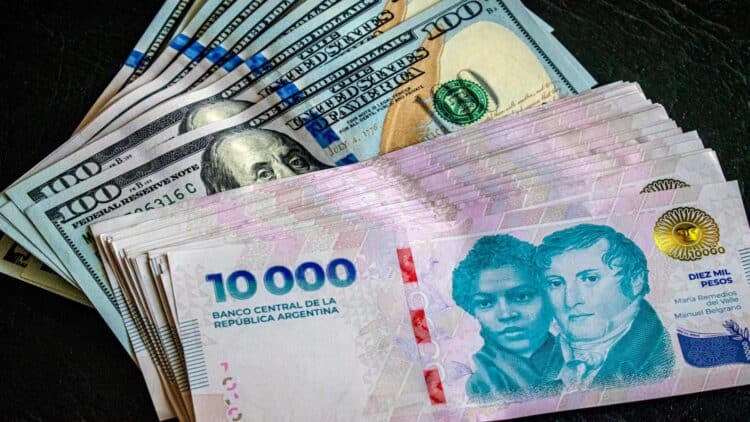In a bold step forward, the U.S. made a $20 billion currency deal with Argentina, directly buying Argentine pesos to help ease the South American country’s economic turmoil, as announced by U.S. Treasury Secretary Scott Bessent. This has sparked heated discussions on the significance of the move in the history os U.S. – Latin American relations. The deal was a result of 4 days of high-level meetings between Bessent and Argentina’s Economy Minister, Luis Caputo, in Washington.
Argentina’s dangerously low foreign exchange reserves and panicking financial markets
Argentina’s elected libertarian president, Javier Milei, hailed the deal as his “lifetime” and “economic freedom and prosperity” in the exchange.
From late 2023, Milei’s presidency, the economic revival, and the “radical” free-market policies have been disappointing.
Austerity, designed to freeze spending, has been devastating, and pessimism has increased around the new president as the public was already frustrated with no apparent growth coming, as inflation was uncontrolled. The peso has been under pressure and, with Milei’s poor performance in recent local elections, investor confidence has been low.
The U.S. involvement comes at a politically sensitive time, just weeks before Argentina’s midterm congressional elections.
Some people see the swap line as a reward for a loyal ideological ally rather than a service for economic stabilization. Since Bessent did not mention economic conditions for the deal, people felt that it lacked accountability, positions, and strategic oversight.
The “No Argentina Bailout Act”
The arrangement has caused outrage from U.S. legislators and farmers. Democratic senators have introduced the “No Argentine Bailout Act”. It offers a complete ban on the U.S. Treasury using exchange stabilization funds on Argentina.
Senator Elizabeth Warren said:
“Trump promised ‘America first’, but he’s putting himself and his billionaire buddies first and sticking Americans with the bill”
With the recent increase in soybean exports to China, which the U.S. has lost access to as a seller, U.S. farmers have lost key access to a key market. They feel that the deal with Argentina completely undermines U.S. farming and exports and helps support a direct competitor.
Even with the controversy, Argentina’s markets reacted positively
After the announcement, the Buenos Aires stock exchange increased by 15%, and dollar-denominated bonds increased by 10%.
Economy Minister Caputo referred to Mr. Bessent’s support as “remarkable.”
Still, the expectation of only a temporary benefit from the swap is Argentina’s reality. After all, Argentina is the largest debtor to the International Monetary Fund, with over $41 billion in unpaid debt, and the previous ‘stability’ bailouts did not work. The peso is still weak and will likely remain so, due to the capless structural reforms.
President Donald Trump’s foreign policy and America First slogan are in the background of the financial support to Argentina. Milei’s Trump admiration and economic policy alignment might be why he received the financial support.
The Treasury’s move will delay further worsening of Latin American markets
As stated by CNN, the Treasury’s move absolutely fits a plan to stave off further deterioration of Latin American markets. The lack of transparency and conditions in the deal frustrates the speculation of a ‘political’ gamble and leads to the silence of a strategic focus.
With elections coming up in Argentina, how the currency swap works can impact the future of Argentina’s economy. It is important for Milei to get back some control and give confidence back to the voters. It is also an opportunity for the U.S. to see if it can intervene in finances without compromising its credibility in the world and at home.
It is unclear whether the $20 billion swap will provide long-term stability for the Argentine peso, but the deal has certainly put Argentina back on the map. It also sparked the conversation on how the U.S. can control and influence the world economy.


